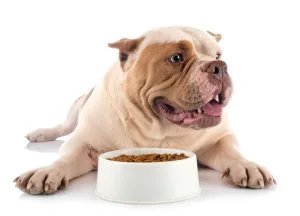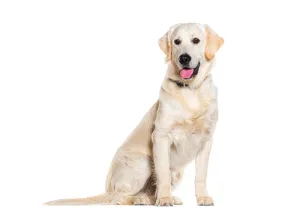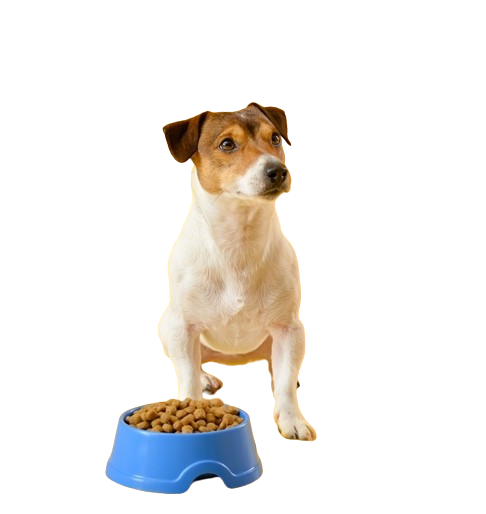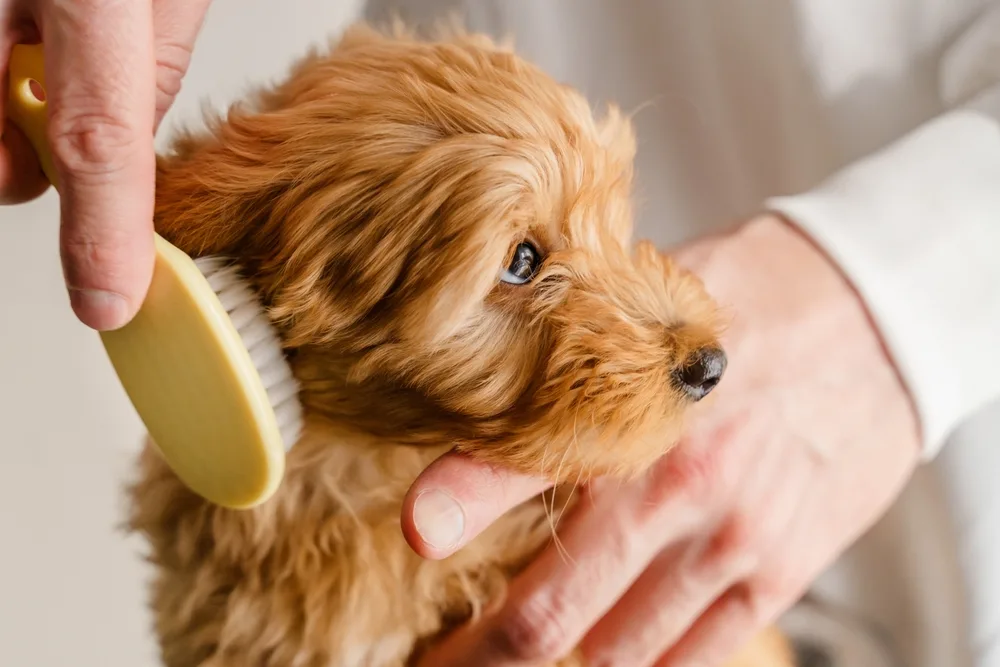Dogs are beloved members of our families, and we want to keep them safe and healthy. One important way to do this is by being aware of the foods that can be toxic to dogs. While some foods may seem harmless to us, they can pose serious health risks to our furry friends. In this article, I will discuss seven surprising foods that dogs should avoid, as well as the potential dangers they can cause.
It’s essential for dog owners to know which foods to avoid feeding their pets. This knowledge can help prevent unnecessary health issues and emergencies. By keeping these foods out of our dog’s reach, we can ensure their well-being and longevity.
Key Takeaways:
- Some foods that are safe for humans can be toxic and harmful to dogs.
- Chocolate, grapes and raisins, onions and, alcohol, and caffeine are common foods that dogs should not eat.
- These foods can lead to organ failure, seizures, and even death in dogs.
- It’s vital for dog owners to be aware of these dangers and keep these foods away from their pets.
- Consulting with a veterinarian is recommended before introducing new foods into a dog’s diet.
Chocolate: A Dangerous Treat for Dogs
Chocolate is a well-known and widely consumed treat by humans, but it poses a significant danger to dogs. This delicious indulgence contains theobromine and caffeine, two substances that dogs cannot efficiently metabolize. Even small amounts of chocolate can have toxic effects on our furry companions.
When a dog ingests chocolate, it can lead to a variety of symptoms, including vomiting, diarrhea, increased heart rate, muscle tremors, and in severe cases, it can even be fatal. The severity of the symptoms depends on the type and amount of chocolate consumed. Dark chocolate and unsweetened baking chocolate contain higher levels of theobromine and pose a greater risk, while milk chocolate is less harmful.
It’s important for dog owners to understand the potential dangers and to keep all types of chocolate out of their furry friend’s reach. Even a small bite of chocolate can cause illness or worse. It’s better to be safe than sorry when it comes to our beloved pets.
Theobromine: The Culprit in Chocolate
Theobromine is a naturally occurring compound found in chocolate. It belongs to a class of chemicals called methylxanthines, which also includes caffeine. While humans can easily process theobromine and caffeine, dogs have a harder time metabolizing these substances. Their bodies break them down much more slowly, leading to a buildup of these toxic compounds in their system.
“Even small amounts of chocolate can have toxic effects on dogs. It’s crucial to keep all types of chocolate out of their reach.”
Theobromine affects several organs in a dog’s body, including the central nervous system, cardiovascular system, and kidneys. It stimulates the heart, causing an increase in heart rate and blood pressure, which can be dangerous for dogs, especially those with pre-existing heart conditions.
Theobromine and caffeine can also affect the central nervous system, leading to muscle tremors, restlessness, and hyperactivity in dogs. In severe cases, it can even cause seizures and life-threatening arrhythmias.
It’s important to note that the toxic effects of chocolate can vary depending on the size, breed, and overall health of the dog. Smaller dogs are more susceptible to the effects of theobromine and caffeine, as their bodies cannot handle these substances as efficiently as larger dogs.
Preventing Accidental Consumption
As responsible dog owners, it’s essential to take precautions to prevent our furry friends from accidentally consuming chocolate. Here are some steps you can take:
- Keep all chocolate products, including candies, cakes, cookies, and baking ingredients, safely stored in cabinets or containers that are out of your dog’s reach.
- Be cautious when guests bring chocolate gifts, especially during holidays like Easter or Halloween. Ensure that these gifts are stored in a secure location.
- Inform family members and guests about the dangers of chocolate for dogs, so they are aware and can help prevent accidental ingestion.
- When enjoying chocolate treats yourself, make sure to do so in a location where your dog cannot access them, and clean up any crumbs or wrappers promptly.
By being proactive and diligent in keeping chocolate away from our furry friends, we can help ensure their safety and well-being.
| Type of Chocolate | Theobromine Content (per ounce) | Risk Level |
|---|---|---|
| Milk Chocolate | 44-66 mg | Low |
| Semi-sweet/Dark Chocolate | 130-450 mg | Moderate |
| Baking Chocolate/Cocoa Powder | 350-600 mg | High |
Grapes and Raisins: Hidden Dangers
Grapes and raisins may seem like harmless snacks, but they can pose serious risks to our furry friends. These seemingly innocent fruits can be highly toxic to dogs, even in small amounts.
One of the most dangerous consequences of grape or raisin ingestion in dogs is kidney failure. This condition can occur rapidly and be life-threatening if not addressed promptly. It’s crucial for dog owners to be aware of the symptoms of grape or raisin toxicity, which include:
- Vomiting
- Diarrhea
- Lethargy
- Increased thirst
- Decreased urine production
If you suspect that your dog has ingested grapes or raisins, it’s essential to act quickly. Contact your veterinarian immediately for guidance and seek professional medical attention for your dog. Time is of the essence when it comes to treating grape or raisin toxicity in dogs.
| Key Points | Actions to Take |
|---|---|
| Recognize the symptoms | Monitor your dog closely for signs of grape or raisin toxicity, such as vomiting, diarrhea, and increased thirst. |
| Seek veterinary attention | Contact your veterinarian as soon as possible for guidance and to arrange prompt medical care for your dog. |
| Prevent access to grapes and raisins | Keep these fruits out of your dog’s reach and be mindful of potential sources, such as baked goods, trail mix, and fruit salads. |
Remember, prevention is the best approach when it comes to protecting your dog from grape or raisin toxicity. By eliminating your dog’s access to these fruits and staying vigilant about potential sources, you can help keep your furry friend safe and healthy.
Onions and Garlic: Harmful to Canine Health
Onions and garlic are common ingredients in many human dishes, but they can be extremely harmful to dogs. These foods contain compounds that can damage a dog’s red blood cells, leading to a condition called anemia. Even small amounts of onions or garlic, whether raw, cooked, dehydrated, or in powdered form, can be toxic to dogs.
The toxic properties of onions and garlic are due to substances called thiosulphates. When dogs ingest these substances, they can cause oxidative damage to the red blood cells, leading to a decrease in their ability to transport oxygen throughout the body. This can result in weakness, lethargy, and even breathing difficulties.
Dogs may exhibit symptoms of onion or garlic toxicity within a few days of ingestion. These symptoms can include weakness, vomiting, diarrhea, pale gums, and an increased heart rate. In severe cases, dogs may experience difficulty breathing or even collapse.
It’s crucial for dog owners to be aware of the potential dangers of onions and garlic and to take necessary precautions to keep these foods out of their pets’ reach. This includes avoiding giving dogs any foods that contain onions or garlic, such as certain sauces, seasonings, or leftovers.
To ensure the safety of your furry friend, it’s important to read food labels carefully and avoid feeding them any products that contain onions, garlic, or their derivatives. Consulting with a veterinarian is always recommended if you suspect your dog has ingested any toxic foods. They can provide guidance on necessary steps to take and can offer appropriate treatment if required.

Image depicting the dangerous effects of onions and garlic on canine health.
Alcohol and Caffeine: No-Nos for Dogs
When it comes to our furry friends, it’s crucial to be mindful of their dietary restrictions. While some human foods are safe for dogs to consume, others, like alcohol and caffeine, can be toxic and pose serious health risks. Just as these substances can have detrimental effects on humans, they can have similar consequences for dogs, even in small amounts.
The Dangers of Alcohol

Alcohol ingestion can have a detrimental impact on dogs’ livers and brains, leading to various symptoms and potentially life-threatening conditions. Some of these symptoms include vomiting, diarrhea, coordination problems, breathing difficulties, coma, and in severe cases, death. It is essential to keep all alcoholic beverages out of your dog’s reach to prevent accidental ingestion.
“Even a small amount of alcohol can be harmful to dogs. It’s important to be vigilant and avoid exposing your furry friends to any kind of alcoholic beverage.”
The Hazards of Caffeine
In addition to alcohol, caffeine is another substance that can be dangerous for dogs. Found in common products such as coffee, tea, chocolate, and some medications, caffeine can lead to similar symptoms as alcohol ingestion. Dogs are more sensitive to caffeine than humans, and even a small amount can result in adverse effects.
“Caffeine can be toxic to dogs and should be kept out of their reach at all times.”
If you suspect your dog has consumed alcohol or caffeine, it is crucial to seek immediate veterinary attention. Prompt action can potentially save your dog’s life and prevent further complications.
Dangerous Fruits and Nuts for Dogs
Certain fruits and nuts can pose risks to dogs’ health. It’s essential for dog owners to be aware of these potential dangers and take the necessary precautions to keep their pets safe.
Macadamia Nuts: Muscle Tremors and Weakness
Macadamia nuts, even in small amounts, can be harmful to dogs. These nuts contain toxins that can cause muscle tremors, weakness, vomiting, and high temperature in dogs. It’s important to remember that even a few macadamia nuts can lead to these symptoms.
Grapes and Raisins: Kidney Failure
Grapes and raisins are well-known hazards for dogs. Ingesting grapes or raisins can potentially lead to kidney failure, even in small quantities. As mentioned earlier, symptoms of grape or raisin toxicity in dogs include vomiting, diarrhea, lethargy, increased thirst, and decreased urine production.
Fruits and Pits: Intestinal Problems and Cyanide Poisoning
Aside from macadamia nuts, other fruits can also be harmful to dogs. For example, certain fruits like persimmons, peaches, and plums, as well as their pits, can cause problems in a dog’s intestines. Moreover, the ingestion of pits can even result in cyanide poisoning, which is extremely dangerous for dogs. It’s crucial to keep these fruits and pits away from your furry friend to avoid any potential health issues.

In order to safeguard your dog’s health, it is important to keep these dangerous fruits and nuts out of their reach, ensuring their safety and well-being.
Harmful Foods for Dogs: The Pantry Dangers
When it comes to keeping our furry friends safe, it’s not just about what they eat, but also what they have access to. The pantry can be a source of potential danger for dogs, as several common items found there can be harmful to their health. Here are some pantry dangers that every dog owner should be aware of:
Raw Yeast Dough: A Recipe for Disaster
Raw yeast dough is a tempting treat for dogs, but it can have serious consequences if ingested. When consumed, the dough can continue to ferment in their stomach, leading to painful gas and bloating. This can cause discomfort and discomfort for your beloved pet. To prevent any mishaps, make sure to keep raw yeast dough out of your dog’s reach.
Spoiled Foods: A Recipe for Stomach Woes
We all know the smell of spoiled or moldy foods from the garbage can be quite unpleasant. But for dogs, it can be more than just an unpleasant odor. Spoiled foods can contain harmful substances and toxins that can upset a dog’s stomach or worse. It’s important to properly dispose of spoiled foods and ensure that your dog doesn’t have access to them.
Nutmeg and Spices: A Dash of Danger
While spices can add flavor to our meals, some of them can pose a risk to our furry friends. Nutmeg, in particular, can be highly toxic to dogs when consumed in large amounts. It can cause symptoms like tremors, seizures, and even hallucinations. Other spices, such as baking powder, can also be toxic to dogs if ingested in large quantities. To keep your dog safe, make sure to store spices securely and away from your pet’s reach.
In conclusion, it’s important to be mindful of the pantry dangers that can harm our dogs. Raw yeast dough, spoiled foods, and certain spices like nutmeg and baking powder should be kept out of their reach. By being cautious and proactive, we can help ensure the well-being and safety of our beloved four-legged companions.
Safe and Healthy Foods for Dogs
While it’s important to know what foods to avoid giving to dogs, there are also several safe and healthy options. Incorporating these foods into their diet can provide vital nutrients and contribute to their overall well-being.
Carrots
Carrots are not only delicious but also incredibly beneficial for dogs. Whether raw or cooked, carrots are low in calories and high in fiber, making them an excellent option for weight management. Additionally, carrots are packed with essential vitamins like vitamin A and beta-carotene, promoting healthy vision and immune system function. They also provide a satisfying crunch that dogs enjoy.
Apples
Apples, when prepared properly, can be a tasty and nutritious treat for dogs. Remove the seeds and core before offering them to your furry friend. Apples are a great source of dietary fiber and can help support healthy digestion. They also contain antioxidants, vitamins, and minerals, contributing to overall canine health. Remember to feed apples in moderation as too much fruit can lead to stomach upset.
Cooked Eggs
Cooked eggs are an excellent source of protein for dogs. They provide essential amino acids necessary for muscle growth and repair. Eggs also offer vitamins and minerals like vitamin B12, selenium, and iron. It’s important to note that eggs should be fully cooked before feeding them to dogs, as raw eggs may carry a risk of salmonella infection. Avoid using any added seasonings or ingredients that can be harmful to dogs.
Remember, when introducing new foods to your dog’s diet, it’s crucial to do so gradually and monitor for any signs of allergies or digestive issues. Consulting with a veterinarian is always recommended to ensure that the chosen foods align with your dog’s specific nutritional needs.
| Safe and Healthy Foods for Dogs | Benefits |
|---|---|
| Carrots | – Low in calories – Excellent source of vitamins and fiber – Promotes healthy vision and immune system function |
| Apples | – High in dietary fiber – Provides antioxidants, vitamins, and minerals – Supports healthy digestion |
| Cooked Eggs | – Rich in protein and essential amino acids – Contains vitamins and minerals like vitamin B12, selenium, and iron |
Conclusion
As responsible dog owners, we must be aware of the dangerous and toxic foods that can harm our furry friends. Foods like chocolate, grapes and raisins, onions and garlic, alcohol, and caffeine should be kept far away from dogs to avoid potential health issues and even death. It’s essential to prioritize the well-being of our beloved pets by understanding what can dogs not eat.
However, it’s not all doom and gloom. There are still plenty of safe and healthy foods that dogs can enjoy in moderation. Carrots, apples (remember to remove the seeds), and cooked eggs are excellent options that provide essential nutrients without posing any harm. It’s important to consult with a veterinarian before introducing new foods to your dog’s diet to ensure their safety and well-being.
In conclusion, being knowledgeable about dangerous and toxic foods for dogs is vital for their health and happiness. By avoiding foods like chocolate, grapes and raisins, onions and garlic, alcohol, and caffeine, we can protect our four-legged companions from potential harm. Instead, let’s focus on providing them with a balanced diet that includes safe and healthy options. Remember, when it comes to our furry friends, their health and safety should always be our top priority.
FAQ
What foods should dogs avoid?
Dogs should avoid certain foods that can be toxic and harmful to them. Some common foods to avoid include chocolate, grapes and raisins, onions and garlic, alcohol, caffeine, macadamia nuts, and certain fruits and nuts.
Why is chocolate dangerous for dogs?
Chocolate contains theobromine and caffeine, which dogs cannot efficiently metabolize. Even small amounts of chocolate can be toxic and cause symptoms like vomiting, diarrhea, increased heart rate, tremors, and in severe cases, it can be fatal to dogs.
What makes grapes and raisins harmful to dogs?
Grapes and raisins can be highly toxic to dogs and can lead to kidney failure, even in small amounts. Ingestion of grapes or raisins by dogs can cause symptoms such as vomiting, diarrhea, lethargy, increased thirst, and decreased urine production.
Are onions and garlic toxic to dogs?
Yes, onions and garlic contain compounds that can damage a dog’s red blood cells, leading to anemia. Even small amounts of these ingredients, whether raw, cooked, dehydrated, or in powdered form, can be poisonous to dogs and may cause weakness, vomiting, and breathing difficulties.
Can dogs consume alcohol or caffeine?
No, dogs should not consume alcohol or caffeine. Both alcohol and caffeine can have harmful effects on dogs’ livers, brains, and overall health. Even small amounts of alcohol or caffeine can cause vomiting, diarrhea, coordination problems, breathing difficulties, coma, and even death in dogs.
What fruits and nuts should dogs avoid?
Dogs should avoid macadamia nuts, grapes, raisins, persimmons, peaches, plums, and their pits. Macadamia nuts can cause muscle tremors, weakness, vomiting, and high temperature in dogs. Grapes and raisins can lead to kidney failure, and certain fruits and pits can cause problems in a dog’s intestines or even cyanide poisoning.
Are there any pantry items that are dangerous for dogs?
Yes, certain pantry items can be dangerous for dogs. Raw yeast dough can ferment in a dog’s stomach and cause painful gas and bloating. Spoiled or moldy foods in the garbage can contain harmful substances and toxins that can upset a dog’s stomach or worse. Large amounts of certain spices like nutmeg and baking powder can be highly toxic to dogs.
What are some safe and healthy foods for dogs?
Safe and healthy foods for dogs include carrots (both raw and cooked) which are low in calories and a good source of vitamins and fiber. Apples, after removing the seeds, can be a tasty and nutritious treat for dogs. Cooked eggs provide essential vitamins, minerals, and protein for dogs. It’s important to offer these foods in moderation and avoid added seasonings or ingredients harmful to dogs.
Why is it important to be aware of foods that are toxic for dogs?
It is crucial for dog owners to be aware of foods that can be toxic and harmful to their pets. Certain foods like chocolate, grapes and raisins, onions and garlic, alcohol, caffeine, and others can cause various health issues including organ failure, seizures, and even death in dogs. By being aware of these foods and keeping them out of a dog’s reach, owners can protect their pets’ health and well-being.









